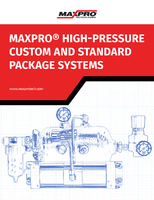IPC to host symposium on electronics and the environment.
Share:
Press Release Summary:
IPC will host "It's Not Easy Being Green: Compliance with Legislation and Customer Requirements," on Feb 4-5, 2009, in San Jose, CA. Symposium will address new and evolving laws, regulations, and requirements including REACH compliance, information on EU's RoHS review process, China RoHS, and regulatory trends in California such as green chemistry, e-waste, and energy efficiency. A keynote address by Joe Johnson will provide insight into CISCO's plans for environmental/product compliance.
Original Press Release:
IPC Environmental Symposium to Tackle Compliance with Changing Legislation and Customer Requirements
BANNOCKBURN, Ill., USA, December 3, 2008 - Regardless of a company's role in the electronics interconnect supply chain, new and evolving requirements affect all aspects of business, from design, purchasing, manufacturing and marketing. To help companies in the electronics industry understand, comply and interpret those regulations, IPC - Association Connecting Electronics Industries® will host a symposium on electronics and the environment, "It's Not Easy Being Green: Compliance with Legislation and Customer Requirements," February 4-5, 2009, at the Wyndham San Jose, San Jose, Calif.
According to Fern Abrams, IPC director of government relations and environmental policy, compliance with environmental laws and regulations presents both business challenges and opportunities. "Environmental regulations may start out as legal requirements, but many ultimately become supply chain requirements. Companies that are unprepared will face disruption of their business; those that are ready to address the challenges will find new opportunities. It's not just about complying with laws and regulations; it's also about how customers interpret those regulations. In the end, meeting customer requirements is as important as following the law."
The two-day symposium will address the new and evolving laws, regulations and requirements, including REACH compliance for electronics manufacturers and their suppliers located inside and outside the EU; updated information on the European Union's RoHS review process including changes in scope, recommendations for the inclusion of medical and monitoring equipment, and the addition of new substance requirements; China RoHS and the process for including electronic products in the catalogue of items subject to substance restrictions; and environmental regulatory trends in California that may impact your business inside and outside of California, including green chemistry, e-waste and energy efficiency.
The keynote address featuring Joe Johnson, senior manager of environmental affairs with CISCO Systems, will provide insight into CISCO's plans for environmental and product compliance. Other symposium highlights include a look into new OEM and top tier EMS commitments to corporate social responsibility; a supply chain panel discussion revealing how each segment is overcoming regulation challenges; a system compliance panel presentation, examining new software products designed to help track supply chain compliance with RoHS and REACH substance restrictions; an overview of OEM supply chain requirements for low-halogen electronics, including the upcoming J-STD-709, Definition of Maximum Limits on the Low-Halogens Bromine & Chlorine Used in Materials for Certain Electronic Components and Assemblies; and the results of the EPA Design for the Environment study on halogen-free flame retardants for printed circuit boards.
"There's a lot packed into two days, but attendees will walk away with a clear understanding of the regulations, the impacts and practical ideas and solutions to address the challenges ahead," remarks Abrams.
For more information on the symposium or to register, visit ipc.org/NotEasyBeingGreen or contact IPC registration staff at +1 847-597-2861 or registration@ipc.org.
About IPC
IPC (www.IPC.org) is a global trade association based in Bannockburn, Ill., dedicated to the competitive excellence and financial success of its 2,700 member companies which represent all facets of the electronics industry, including design, printed board manufacturing, electronics assembly and test. As a member-driven organization and leading source for industry standards, training, market research and public policy advocacy, IPC supports programs to meet the needs of an estimated $1.5 trillion global electronics industry. IPC maintains additional offices in Taos, N.M.; Arlington, Va.; Garden Grove, Calif.; Stockholm, Sweden; and Shanghai, China.




